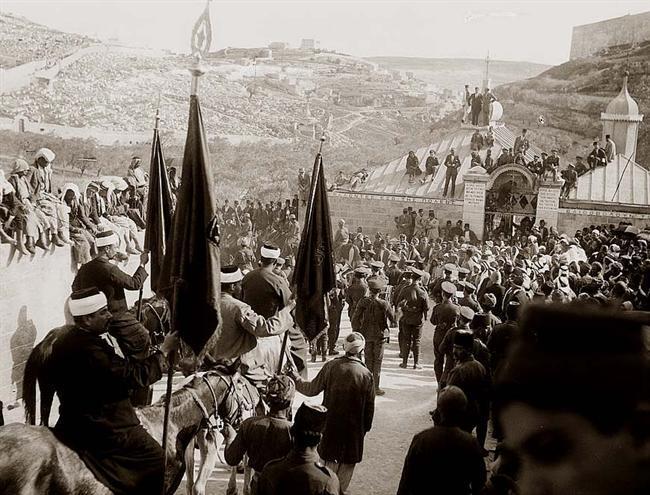April 4, 1920
The Nebi Musa festival, a Muslim pilgrimage to the site believed by Muslims to be the grave of Moses (Musa is the Arabic name for Moses, who in addition to his importance in Jewish history/religion is also a Muslim prophet) near Jericho, erupts into violence that leaves five Jews and four Arabs dead after three days of fighting. Hundreds more, mostly Jews are wounded. The violence occurs amidst rising tensions in Arab-Jewish relations over increased Jewish immigration and attacks on outlying Jewish settlements in the Galilee. Speeches by Arab religious leaders during the festival lead to an outbreak of violent assaults on the city’s Jews.
In his memoirs, Ronald Storrs, the British Military governor of Jerusalem writes, “Enough that for the time all the carefully built relations of mutual understanding between British, Arabs and Jews seemed to flare away in an agony of fear and hatred. Our dispositions might perhaps have been better (though they had been approved by higher authority), but I have often wondered whether those who criticized us in Europe and America could have had the faintest conception of the steep, narrow and winding alleys within the Old City of Jerusalem, the series of steps up or down which no horse or car can ever pass, the deadly dark corners beyond which a whole family can be murdered out of sight or sound of a police post not a hundred yards away. What did they know of the nerves of Jerusalem, where in times of anxiety the sudden clatter on the stones of an empty petrol tin will produce a panic? The Police were but partially trained and wholly without tradition. There was no British Gendarmerie: we had not one single British Constable.” (Storrs, Ronald, The Memoirs of Sir Ronald Storrs, 1937, p. 348)
The riots take place on the second day of Passover and lead, among other things, to the formation of the Haganah, the precursor to today’s Israel Defense Force in June of 1920 as well as the decision by the British to change from a military administration of Palestine to a civilian one.
In 1922, to reassure the Arab population of Palestine of Britain’s aim to be even-handed in managing the Mandate, Winston Churchill, then Colonial Secretary, publishes a policy statement asserting Britain’s goal not to make Palestine wholly Jewish or subordinate to the Arab population. Among other pledges, the 1922 White Paper ties the rate of Jewish immigration to the “economic absorptive capacity of the country.”
The photo shows the procession of the festival in Jerusalem in April 1920.
Photo source: Wikimedia Commons, Public Domain









